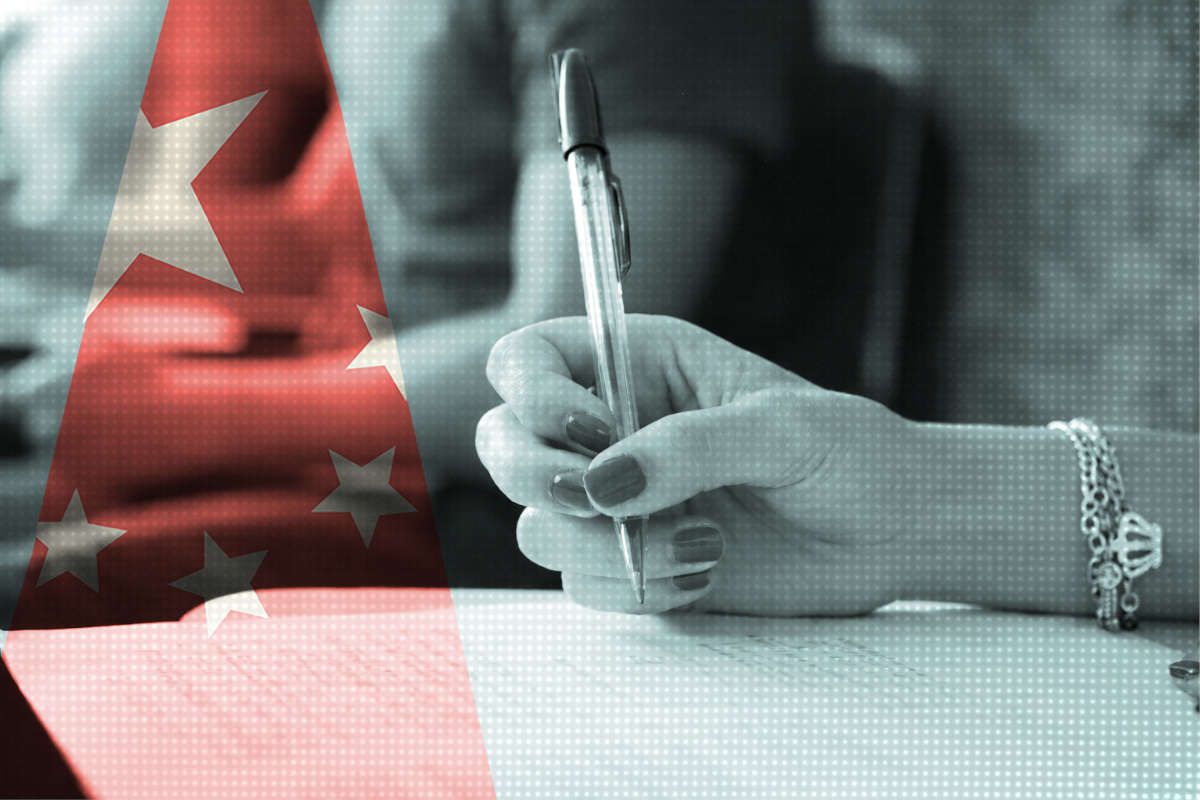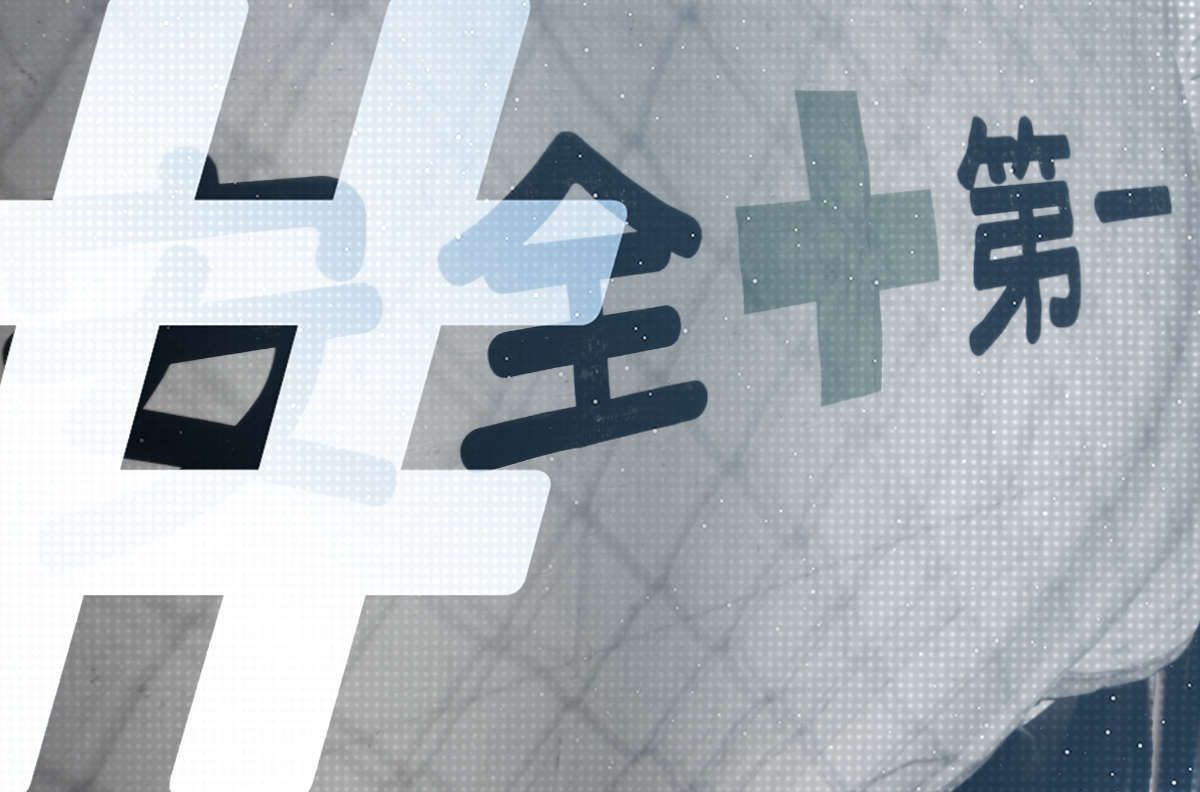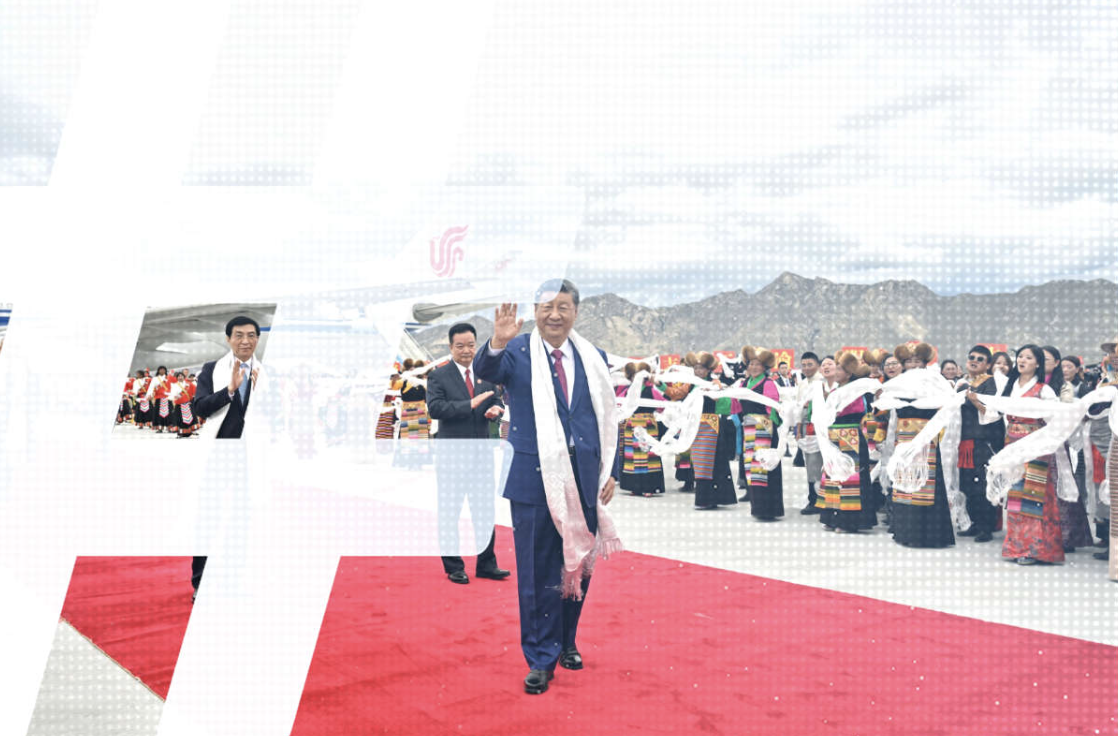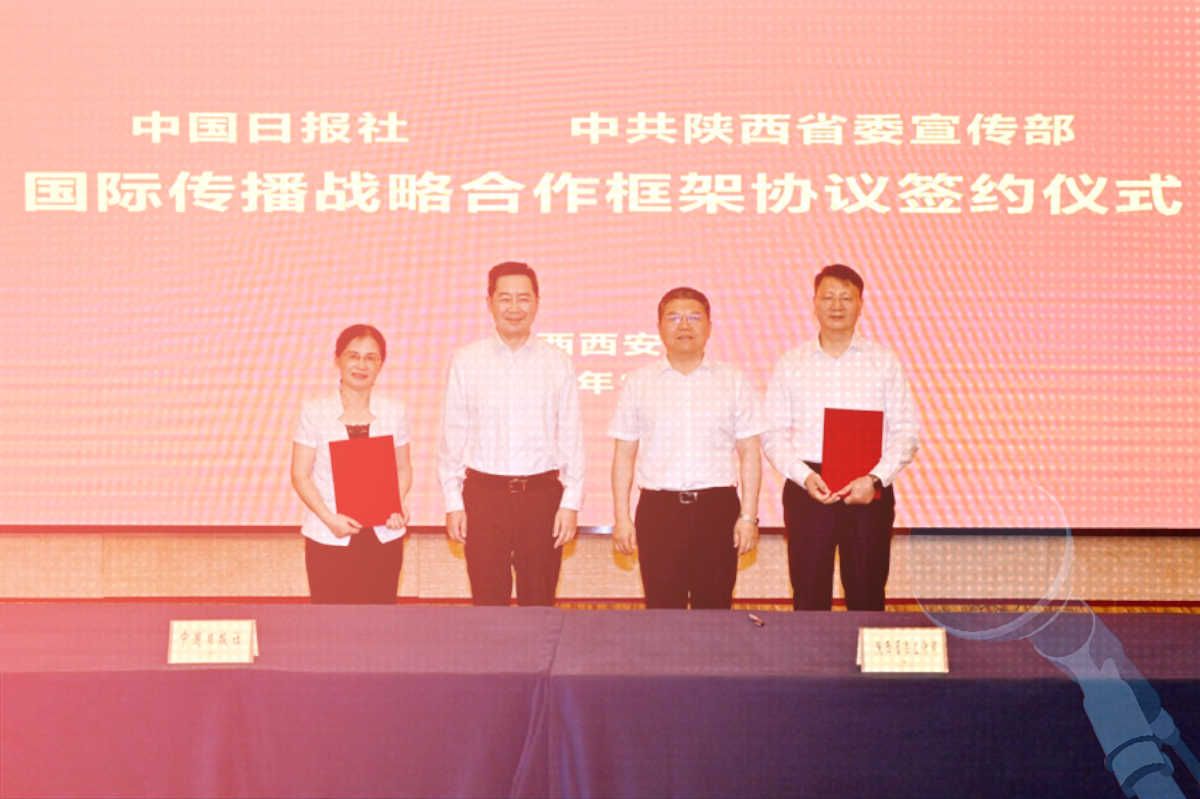
“Our country is crumbling,” American influencer Jackson Hinkle says in a YouTube video from March. “The working class have terrible jobs. Our infrastructure is falling apart. Our government is spending hundreds of billions on wars in Ukraine, Taiwan, Israel, everywhere else, and we’re letting all these 7 million illegal migrants come into our country in one year.”
Hinkle is attempting to explain the meaning of “MAGA Communism” to Zhang Weiwei (張維為) of Fudan University’s China Institute, one of the Chinese Communist Party’s favorite propagandists and public intellectuals. The ideology he espouses is a chimera born of two seemingly irreconcilable belief systems: the right-wing nationalism and nativism espoused by former US President Donald Trump — represented by his campaign slogan “Make American Great Again” — and the ostensibly far-left authoritarianism of the Chinese Communist Party.
“What we’re trying to do as MAGA communists,” Hinkle says, “is show the American youth that yes, communism is good… China is the embodiment of it and we should respect them and also try to work with them rather than go to war with them.”
The exchange, conducted at a forum in Moscow and uploaded to Zhang’s YouTube channel, was just one of several Hinkle joined in affiliation with the Guancha Syndicate (觀察者網), an online news portal and China Institute partner closely associated with China’s “new nationalist” movement. At Guancha’s invitation in February, Hinkle also joined a forum in Shanghai attended by some of the country’s top intellectuals.
This strange spectacle begs a simple question: Why is China platforming — indeed, treating as a renowned expert — a 24-year-old whose ideas more closely resemble edgy conspiracy-theory memes than any coherent ideological alternative?
The Horseshoe Game
On the face of it, this appears to be an incomprehensible and out-of-touch choice. But Hinkle’s meteoric rise on social media and his wide target audience seemingly offer authorities in Moscow and Beijing access to swathes of the US population they may have once found unreachable. He appeals both to the left — through his pro-Palestine stance, his identification as a “communist,” and his frequent denunciations of American imperialism — and also to the right, with his anti-“woke” nationalism peppered with invocations of the “deep state” and “globalist” conspiracy theories.
Over the past two years, this approach has earned Hinkle 2.6 million followers on X, plus a few in the Kremlin. More recently, PRC media have also begun to see him as royalty. He has appeared on panels and in interviews alongside well-known figures like Zhang, venture capitalist turned Guancha founder Eric X. Li (李世默), Russian government officials, and Aleksandr Dugin, the far-right political philosopher dubbed “Putin’s brain” by some foreign media.
In March, Hinkle announced, in English and simplified Chinese, that he was opening his own Weibo account. “I’ll be collaborating on content with some of China’s most influential academics & largest social media influencers. Looking forward to building this bridge between our people,” he wrote in a post sent from Moscow. There, his account has become a source for content on Israel-Palestine and US anti-war protests, both for ordinary users and media like RT News, the state-controlled international network funded by the Russian government.
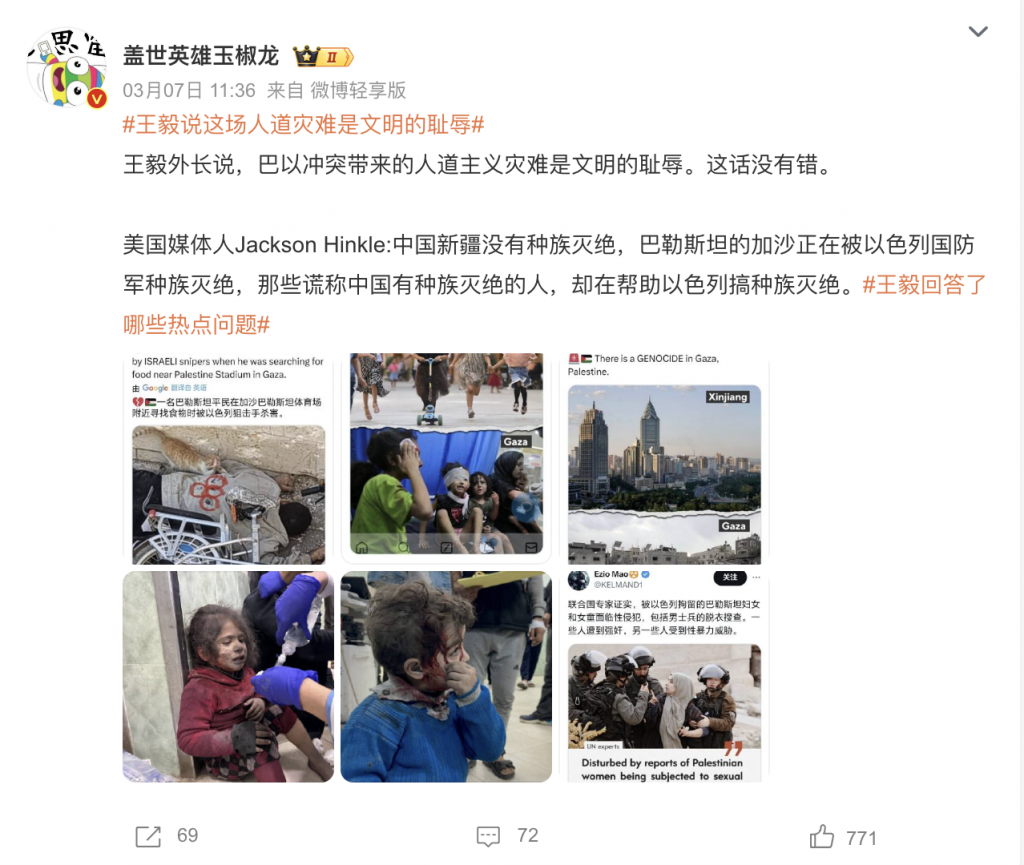
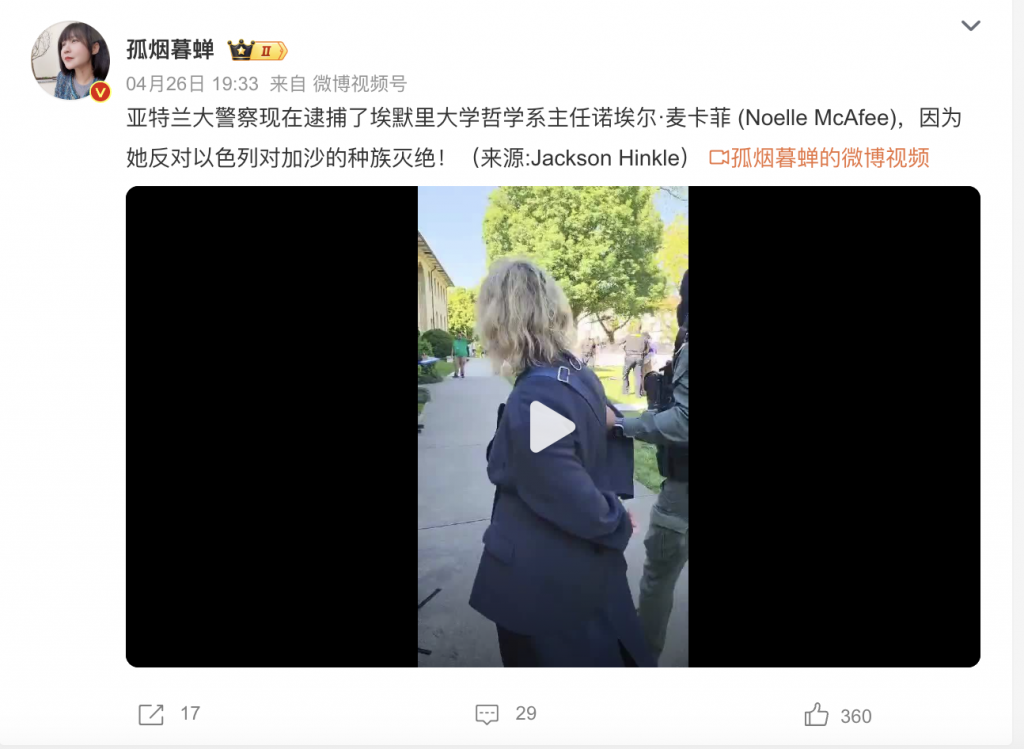
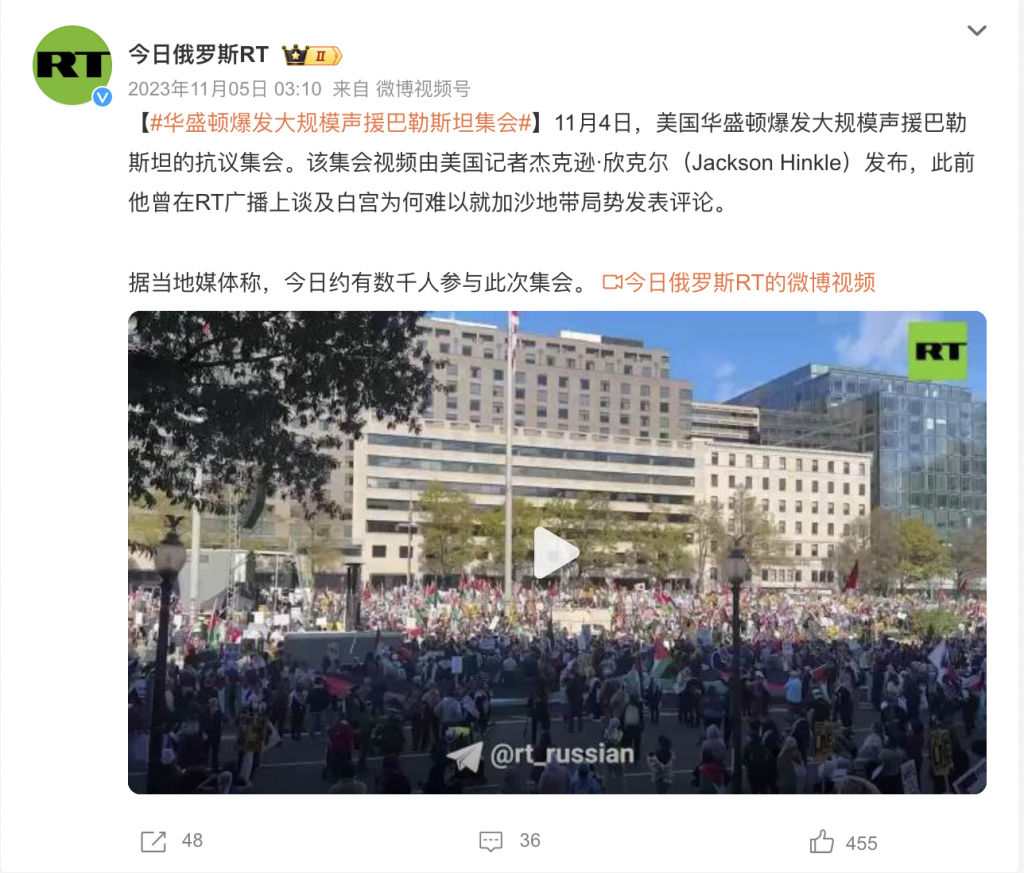
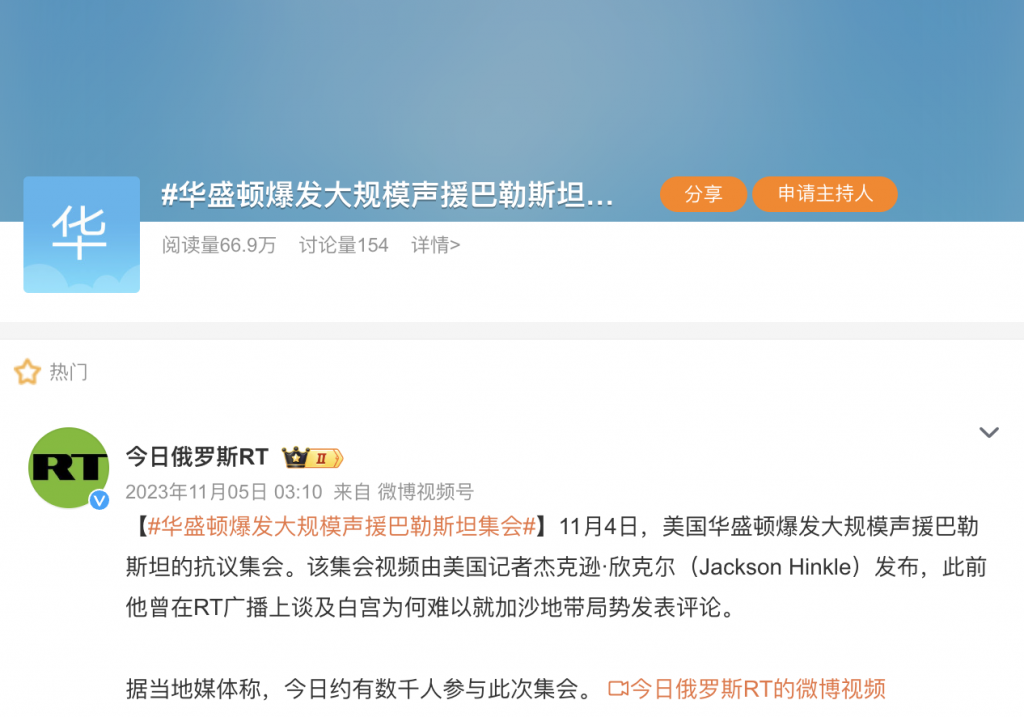
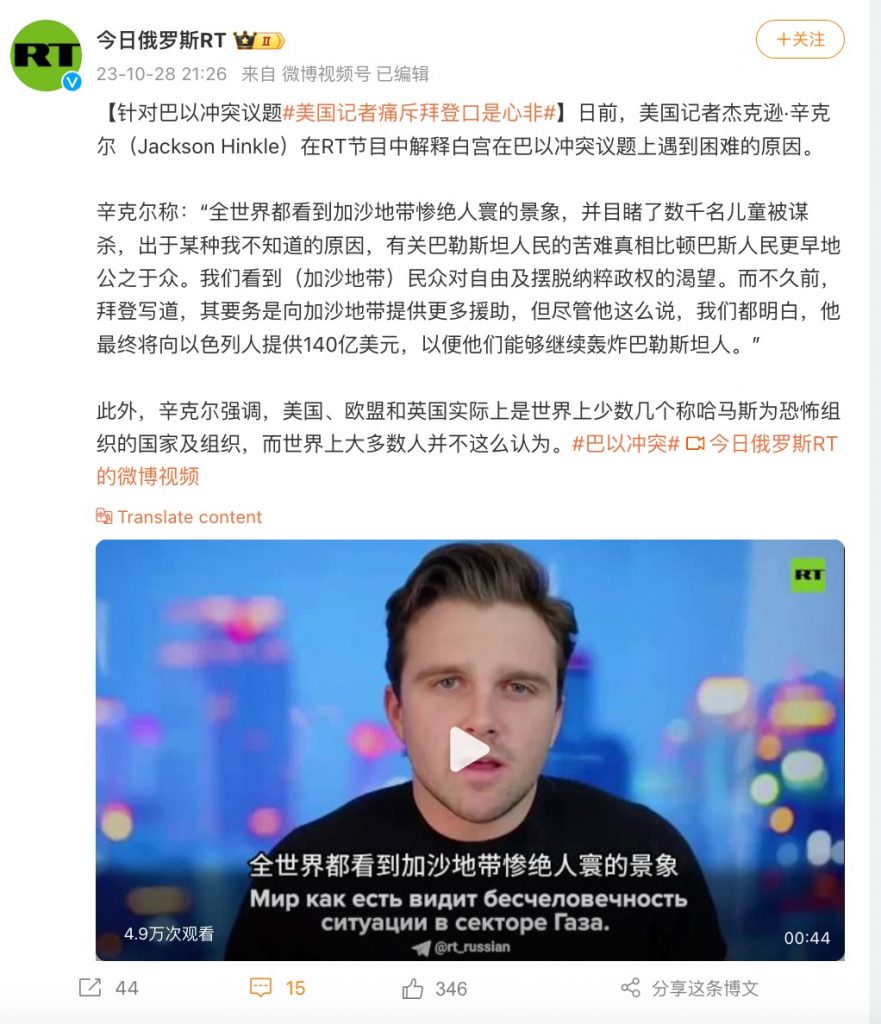
With an election approaching and the US entrenched in two wars increasingly unpopular with the general public, Russia and China are using Hinkle and others like him to further discredit the US government and elicit sympathy for their own regimes.
From Zero to Hero
The fact that any government is assigning so much importance to Hinkle would have been inconceivable just a couple of years ago.
Before Russia invaded Ukraine in early 2022, Hinkle was essentially a nobody. He began his foray into politics as a left-wing environmental activist who ran a failed 2019 campaign for city council in San Clemente, California. It’s unclear when or why, exactly, he took his radical turn, but as Russia’s war on Ukraine pressed on, Hinkle saw a steady rise in visibility for his pro-Putin views as he became part of a network of Western propagandists helping to legitimize Russia’s invasion to foreign audiences.
But his popularity truly took off on Elon Musk’s X thanks to his posts about Israel and Palestine. Since October 2023, Hinkle’s following has grown from about half a million followers to 2.6 million. His personal account has become akin to a content farm, where he mostly shares photos and videos of world leaders or injured Palestinians with short, emoji-laden captions like: “Israel is a TERRORIST STATE,” (31 million views) or “DROP A LIKE if you stand with IRAN!” (3.9 million views). He also engages regularly in homophobia, antisemitism, and denial of the Uyghur genocide in Xinjiang, and has circulated numerous false claims.
His virality and bizarre ideology have earned him interviews with right-wing media personalities like Tucker Carlson and Alex Jones, as well as former CNN anchor Chris Cuomo, who as suspended by the network in 2021, and left-wing British MP George Galloway, plus a recent profile in The New York Times. Hinkle has not disclosed how much money he makes from his posts, but the social data intelligence company Notus estimates he collects more than 4,000 dollars per month in advertising revenue.
Despite its profitability, MAGA communism “at its core is a working-class movement,” according to Hinkle. “It’s the first time we’ve had class consciousness reintroduced in the American political debate for decades.” Its target demographic is the “MAGA movement” itself: “working-class individuals that feel as though they’ve been screwed over by the establishment, whether it’s the warmongers, whether it’s big pharma, whether it’s Wall Street.”
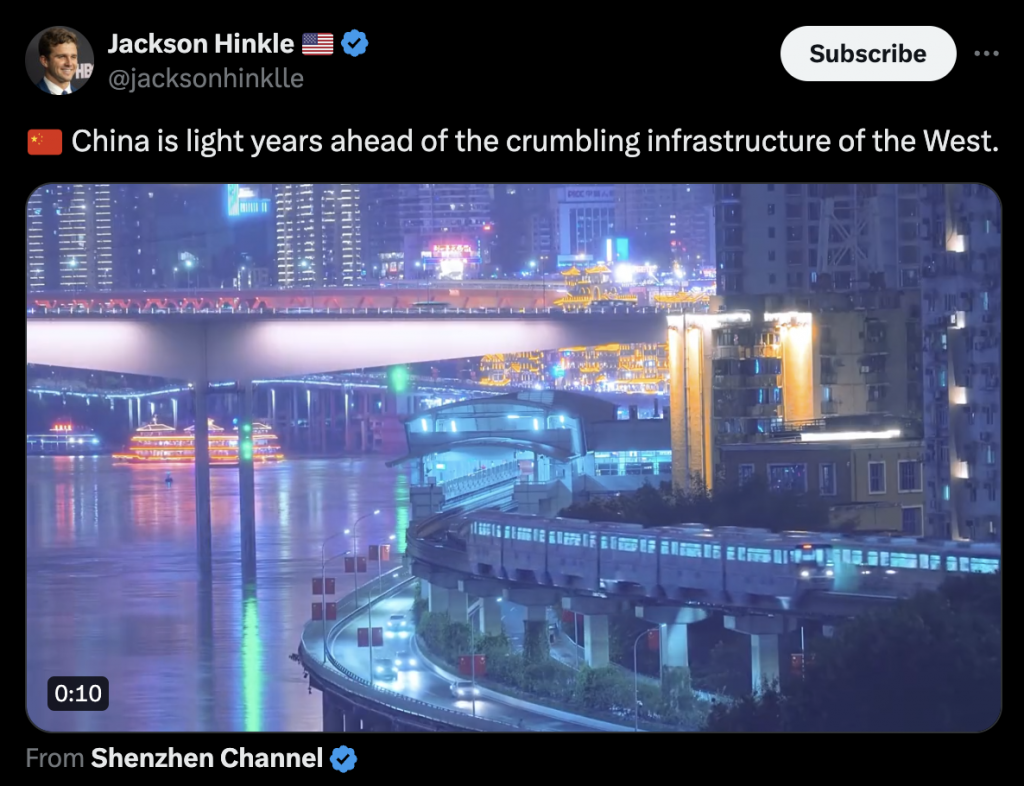
At an event announcing a new think tank earlier this year, “MAGA communism” founder Haz Al-Din explained that America is failing because it is run by “a small cartel of American capitalists” who represent “foreign interests.” In a similar vein, Hinkle says that America should instead look to countries like China and Russia, which are “much nicer, much cleaner, much safer, have no homeless, [and] have better infrastructure” while at the same time “are not waging imperialist for-profit wars.” They discuss the dream of a “multipolar world” to replace American “unipolarity” with the help of financial institutions like BRICS. Though MAGA communists stress that they disagree with some of Trump’s positions, they have recently become bolder in advocating for him, claiming he is “the only candidate working to build global peace.”
Strange Bedfellows
Hinkle seems to be an extreme example of “tankie” leftism, referring to Marxist-Leninists who support acts of violent repression as long as they’re done by regimes in their camp. Others have called him a right-wing grifter exploiting the crisis in Gaza to spread misinformation and gain an online following. But what Hinkle echoes most familiarly, as Ben Lorber explains in a recent piece for Jewish Currents, is a long tradition of conservative nativism and “America First” nationalism gaining ground in pockets of the MAGA right among figures like Carlson, Candace Owens, and Steve Bannon.
“There’s this sort of horseshoe dynamic going on where the further left or the further right you go, you sort of meet in the middle and the CCP seems to be comfortable dealing with either extremity as long as it aligns with the CCP’s view,” said Fergus Ryan, a senior analyst at the Australian Strategic Policy Institute (ASPI).
Code Pink, Code Red
English-language media in the PRC, particularly the generously-funded CGTN, have been platforming foreign “tankie”-esque figures like Galloway, Calla Walsh, and Jeffrey Sachs with increasing regularity. Andy Boreham, a New Zealander who hosts the English-language show “Reports on China” with the Shanghai Daily, seems lately to be increasingly comfortable espousing far-right views, expressing sympathy for Trump and praising far-right commentator Andrew Tate for “helping China spread the word.” Boreham also recently released a 37-minute interview with Hinkle. In Europe, China has succeeded in courting both the far-right and far-left, with Hungary’s Viktor Orban emerging as a close ally.
“The Communist Party doesn’t have any political principles so they have no difficulty identifying with people identifying as far right or far left, even people as being avowedly anti-Chinese. They are extremely practical to a fault in thinking about who their collaborators might be,” says Eli Friedman, an assistant professor of sociology at Cornell University who studies labor and social movements in China.
The CCP’s ethnonationalist tendencies and positions on issues like immigration and gender make its positioning closer to that of Russia, Trump, and the Republican party than the American right may like to admit, “a big exception being how they approach this question about empire,” Friedman says. It was for those issues and his nationalistic, “strongman” style that Trump gained his share of Chinese fans during his presidency.
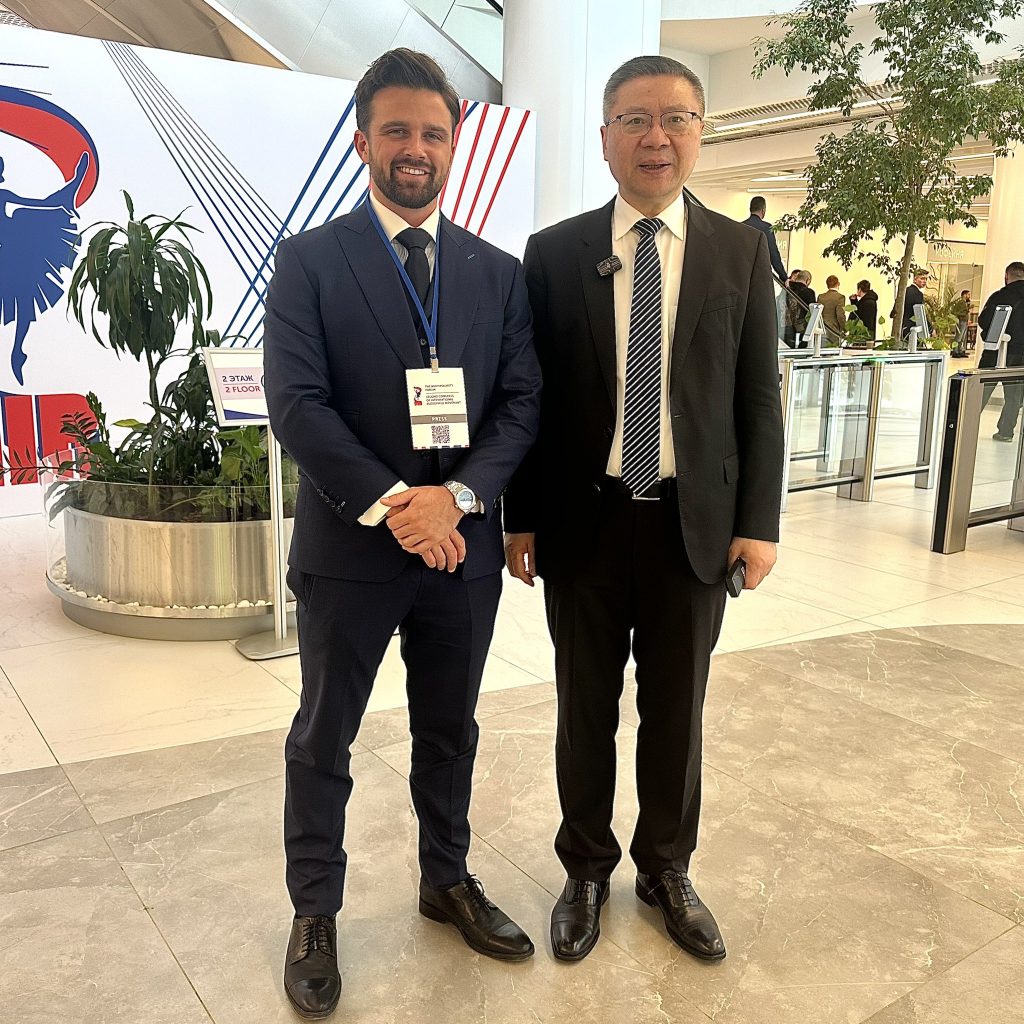
In China, Hinkle is so far being platformed only by the tight-knit circle of propagandists surrounding Zhang’s China Institute and Guancha, which is not directly controlled by the CCP but abides closely by government narratives. It is unclear who invited Hinkle to China and who is translating his posts into Chinese for Weibo, but The New York Times reported that he “visited Russia and China this year at the invitation of organizations close to the governments.”
“The combination of him having such an influential account on X and him already being sort of vetted in a way by the Russian Foreign Ministry and Dugin would help make any decision by this Guancha Syndicate group to invite him onto panels,” Ryan said.
Engagement is Everything
The appeal to more extreme voices in the Chinese media reflects its commercialization and a growing need for more engaging and controversial content, says Maria Repnikova, a researcher of China’s political communication at Georgia State University. In that way, it may be taking notes from Russia.
“[It’s] interesting to consider how much RT is a model, is an inspiration of an alternative propaganda platform that has been arguably more successful. This matrix might have influenced this approach as well in China,” she said.
Israel’s war on Gaza has become a useful tool in bolstering China’s existing narratives that position the US as a hypocritical warmonger in contrast with China as a peacemaker. And as a particularly contentious election approaches, Israel and Gaza are featuring prominently Chinese “Spamoflage” campaigns, according to findings by the Institute for Strategic Dialogue (ISD). These efforts have pivoted from standard “Spamoflauge” activity — first detected in 2017 in connection to China’s Ministry of Public Security — toward a more explicitly right-wing, pro-Trump “MAGA” perspective, posting real and AI-generated photos and videos on “culture war” issues alongside pro-CCP narratives. Many of these accounts have shared posts from Jackson Hinkle and related influencers.
Researchers say these campaigns aim to amplify existing divisions rather than sway the election in either direction. Some such posts have garnered significant engagement. In one notable example, Alex Jones shared a post by what ISD identified as a Chinese “Spamoflauge” account on X claiming that “Biden and the CIA had sent a neo-Nazi leader to fight in Ukraine with the Azov Battalion,” a claim that originated on Russia’s RT News. However, that strategy appears to have been largely ineffective.

Hinkle’s ideology would appear to align well with that of Chinese nationalists, but he hasn’t achieved popularity within China. Many see straight through his grift: when the false claim that Hamas had killed an Israeli sniper circulated on Chinese social media last November, state-backed The Paper traced the claim to Hinkle and called him a “spreader of false information.” “I get high blood pressure just watching Jackson Hinkle for one minute,” one Weibo user commented. “I don’t know why every site is pushing him.”
His long-term resonance among Americans is up in the air, too. Some tech research companies have found that a significant number of his followers are likely fakes and that his posts have been amplified by networks of inauthentic accounts, some of which have previously posted unrelated content in Chinese. A look at his presence on other platforms reveals much smaller followings; after Hinkle was kicked off YouTube, he moved to Rumble, where view counts on his videos rarely surpass the tens of thousands. Offline, he remains relatively unknown.
His ideology, too, leaves much to be desired from both the left and the right. A left-leaning audience may be fooled by his seemingly pro-Palestine viral posts, but a deeper look into Hinkle’s ideology exposes no more solidarity for Palestinians than a strategic placement of a Palestinian flag during a speech in which he makes a clear reach to the right in focusing almost exclusively on Israel’s crimes against Christians. What CCP media attempt to portray as solidarity with Palestine, too, is negated by China’s close economic relationship with Israel and exchanges on “anti-terror” strategies and surveillance technology.
In the end, Hinkle seems to be a much dearer friend to the Kremlin, which has been far more successful in courting the American right. China seems as though it wants to replicate that success, but it has a problem: Russia, unlike China, does not pose a credible threat to American dominance. “For people on the right in America, it’s a question of the ordering of principles. For them, the preeminent principle is American dominance. Then they can’t compromise with China,” says Cornell’s Friedman.

